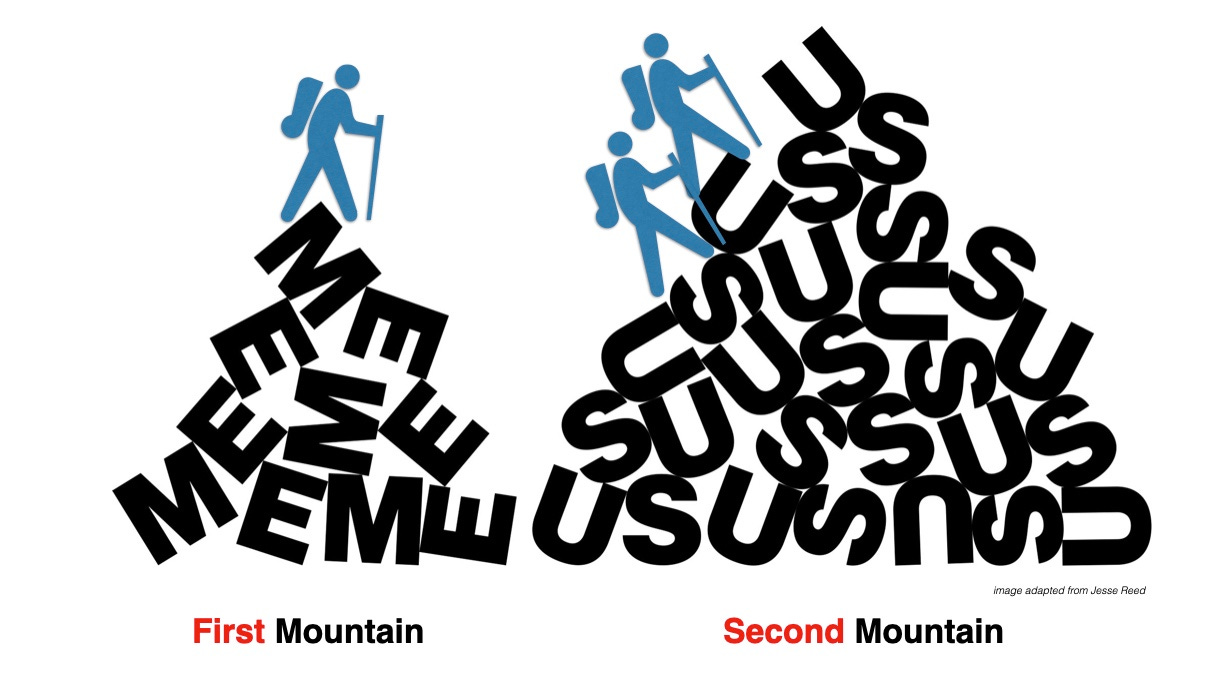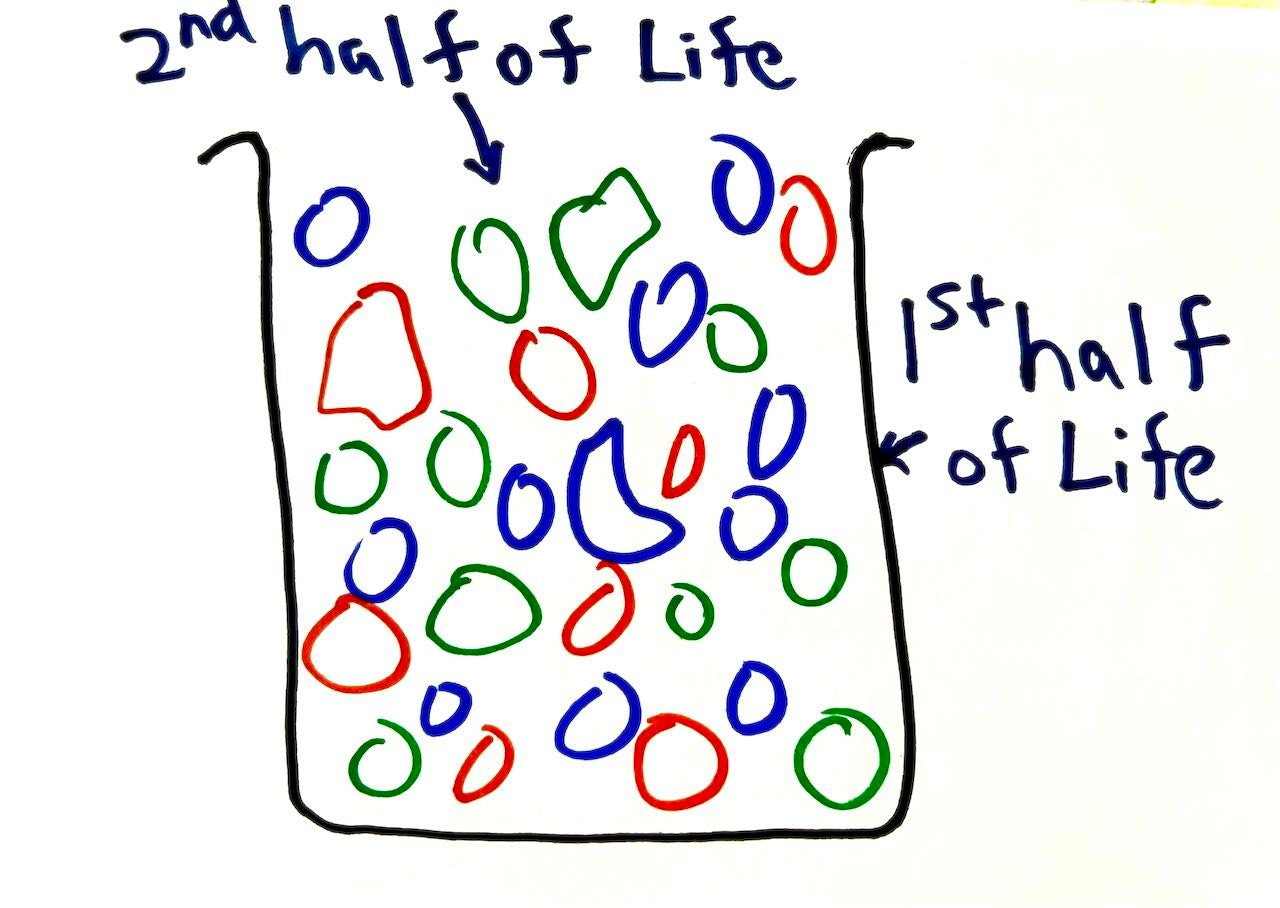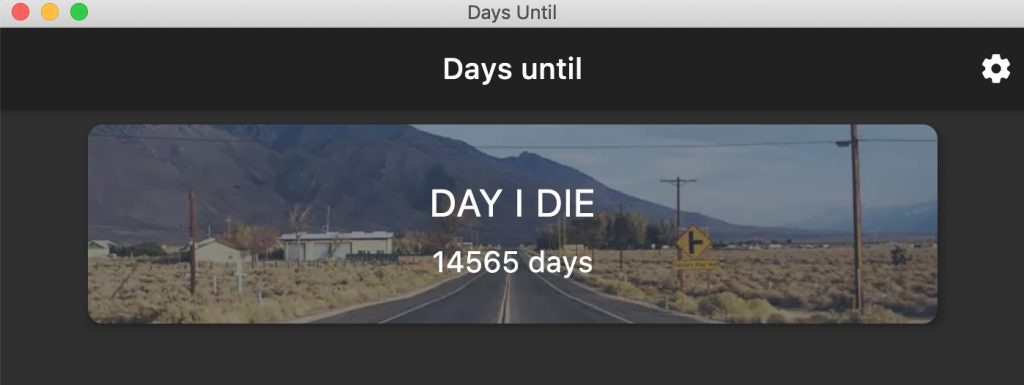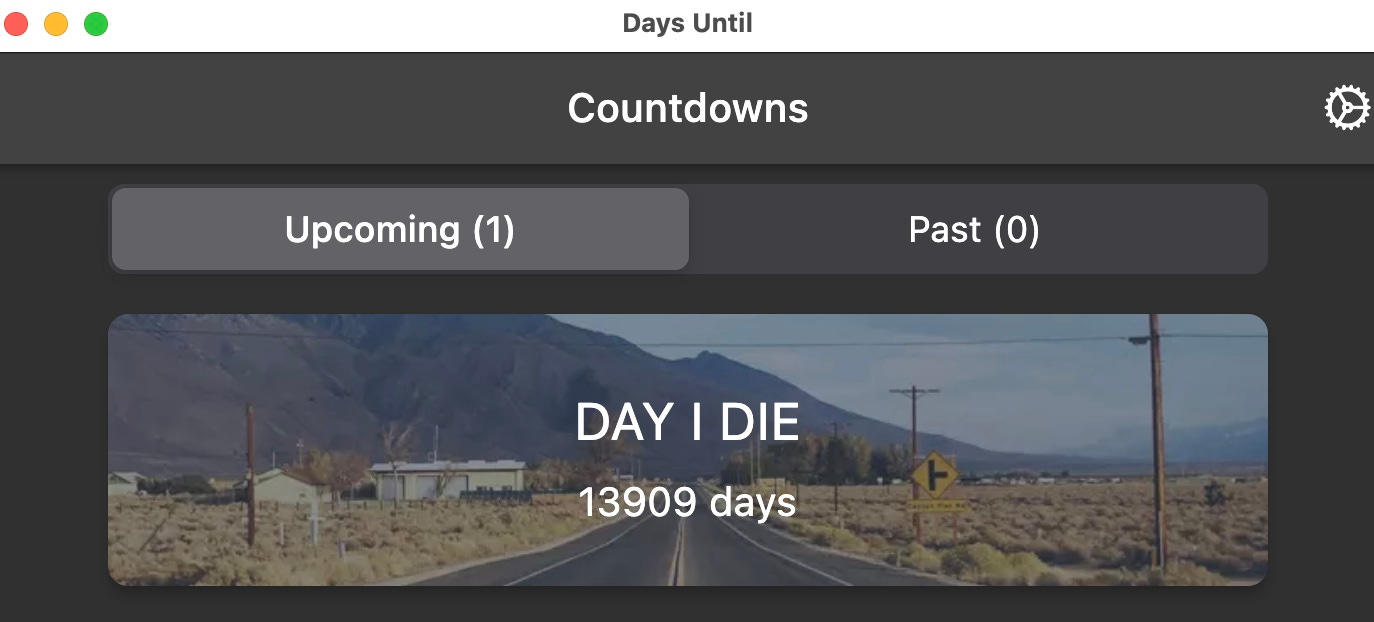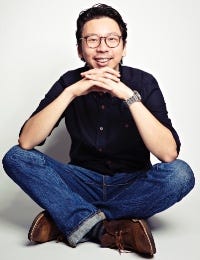FF112: Existence (Part III) ⭕️
Our relationship with time, mountains we climb, second half of life, and rock n' roll...
On Saturdays, I’d put my 9-year-old daughter to bed and I’d stay with her ’til she sleeps.
The reason: During this weekly ritual, she gets to ask me any questions that’s on her mind.
One night, she asked, “Papa, you used to play in a band, correct?
“Yeah, why?” I replied.
“What kind of music did you play?”
“Hmm… you could call it rock, I guess.”
“I see…That’s surprising,” She said.
“Why is that surprising?” I asked.
She replied, “Well, I don’t see the rock in you.”
Ouch.
I’m not a Rolling Stone, but even though I tell stories about our past to my kids, this hit me that they do not really know me in my first half of life.
My daughter’s comment hit home a key point that two of the recommended authors below, David Brook and Richard Rohr touch upon independently, which is the topic of the Second Half of Life.
1. 📕 Read: Second Mountain
I first learned about journalist David Brook's work from his previous book, Road to Character.
Here's a snippet from his book regarding the quest for a moral life, challenging the extreme notions of individualism:
“If the first mountain is about buidling up the ego and defining the self, the secon mountain is about shedding the ego and losing the self. If the first mountain is about acqusition, the second motunain is about contribution. If the first moutain is elitist—moving up—the second mountain is egalitatrian—planting yourself amid those who need, and walking arm in arm with them.”
Brook goes on to address the four commitments that define a virtuous and meaningful life: to relationships, to a vocation, to a philosophy or faith, and to a community. I love what he says about Freedom:
"Political freedom is great. But personal, social, and emotional freedom—when it becomes the ultimate end—absolutely sucks. It leads to a random, busy life with no discernable direction, no firm foundation... It turns out that freedom isn't an ocean you want to spend your life in. Freedom is a river you want to get across so you can plant yourself on the other side—and fully commit to something.”
2. 📕 Read: Falling Upward
Richard Rohr is probably one of my favorite living authors. A Francisian Friar who strikes me as conservative with his values, but liberal with the process, his words are often resonant.
Falling Upward is not just a book about second half of life. it is a book of pointing at paradoxes.
“Homes are not meant to be lived in— but only to be moved out from."
"The way up is down.
Building on Jung's original idea on two halfs of life, Rohr says,
"...there are at least two major tasks to human life. The first task is to build a strong "container" or identity; the second is to find contents that the container was meant to hold."
Here's an important point about Falling Upward:
'We are a "first-half-of-life" culture, largely concerend about surviving successfully.' ''...But it task us much longer to discover "the task within the task..."''
Elsewhere, Rohr cites Bill Plotkin,
'Many of us learn to do our survival dance," but we never get to our actual "sacred dance."''
It is a breath of fresh air to hear him self-examine the dogmas in his embedded his faith practices:
'We clergy have gotten ourselves into the job of "sin management" instead of sin transformation.... I do not think you should get rid of your sin until you learned what it has to teach you.''
3. 🎧 Listen: Father Wounds, Male Spirituality, and the Journey to the Second Half of Life
This is an interview with Richard Rohr.
This podcast episode is particularly relevent if you work with young men.
He might be a Franciscan Friar, but his framework is not limited to the constrains of religious perspectives. In fact, I would argue that his voice is one that is much needed in our times.
4. 🤖 Lo-Tech, Hi-Value Idea: Install a Countdown Timer
Here's a suggestion: Install a single countdown timer on your device.
Each year, I try to condense what've learned into an annual post. Here's what I wrote on one of my reflections in "Looking Back at 2020" (FPD), Perspective of Time.
”Kevin Kelly is a sort of unlikely intellectual hero for me. I first came across his work in his book, The Inevitable, which cover grounds on innovations in technology. He wrote a blog called My Life Countdown that got me to think about this idea on changing my perspective of time.
In gist, I installed an app that did only single thing: It’s a countdown timer.
My sole purpose is to countdown one event. The day I die.
Here is a screenshot of an app that he recommended to download that sent a livewire down my spine:
Note: pick a free app that works as a countdown timer. I install Days Until app for Mac. Set it to count only this one variable: The day you die.
Based on a simple Web search, and being an Asian male who doesn’t have significant bad habits or heath issues, I estimated how long I might live (about 81.4 years), and then key in the rough date… viola! The day I die.
What was striking was how little amount of days I mighty likely have (14,000+). At age 42, for some unexamined reasons, I assumed I would have abit more days than that!”
Update: The screenshot above was made on 17 Jan 2021. Below is the screenshot made on 3 Nov 2022.
This completely heighten my sense of wakefulness about my mortality. It sharpened some kind of clarity in a visceral way… It’s been more than a year of starring at this, and it has sharpened my sight.
We all know that we are all gonna die (and I may have less than 13,909 days left, who knows), but having the estimates of the literal number of days left, completely added perspective.
I told some people about what I did with this countdown timer. One said “that sounds a bit morbid.” A youth I was working with said, “That sounds like alot of time left.” Talk about perspective… but most had the same reaction: “Wow…”
Most of the exclamations were really about the implications for themselves.
Money is not the only thing that you can count.
5. ⏸ Words Worth Contemplating:
One cannot live the afternoon of life according to the program of life’s morning; for what was great in the morning will be of little importance in the evening, and what in the morning was true will at evening become a lie.
~ Carl G. Jung
Reflection
Where are you in your life?
What kind of mountain are you climbing?
Where are you going?
Why?
Waitlist for Clinical Supervisor’s Training
Are you a clinical supervisor?
If so, the online course Reigniting Clinical Supervision that has been going on for more than 4 years is about to begin it’s next cohort.
RCS is specifically designed to help you raise the bar of in supervision, and become more effectual with therapists, so that your positive impact promotes therapist’s development, and ultimately impact their clients.
Email me to be on the waitlist to be in the 13th cohort, slated to begin before the end of 2022. (E: admin@darylchow.com)
BIG HUGS TO NEW PEOPLE WHO ARE AT THEIR FRONTIER!
If you've just joined us, I'm glad you can join us at the "bleeding edge." Feel free to check out the back catalogue of Frontiers of Psychotherapists Development (FPD). You might also want to go into specific topics in the FPD Archives like
And if you want to see past newsletters, the entire archive is now made available in substack.
In case you missed it, see the most recent missives
Devotion to the Craft (6 Parts)
Caring for People in Organisations (3 Parts)
Clinical Supervision (3 Parts)
Feedback Informed Treatment (4 Parts)
Unintended Consequences (2 Parts)
Deep Learner (4 Parts)
Going Further with Deep Learner and The Use of Obsidian (6 Parts)
See What You Hear, Hear What You See (4 Parts)
Trauma (3 Parts)
Deliberate Practice (5 Parts)
Empathy (6 Parts)
Therapist Effects (2 Parts)
Client Point of View (4 Parts)
Tech Tools for Therapists (4 Parts)
Emotions (6 Parts)
Sensitivity (3 Parts)
Alliance (6 Parts)
My other blog site is called FullCircles: Reflections on Living
By the way, don't feel bad if you want to unsubscribe to this newsletter. This might not be for you. The last thing I want is to add to the anxious clutter of our inboxes.
Daryl Chow Ph.D. is the author of The First Kiss, co-author of Better Results, and The Write to Recovery, Creating Impact, and the forthcoming book The Field Guide to Better Results.
Note: These newsletter are free, many hours are spent handpicking the curated list that make it to Frontiers Friday, as well as writing the essays and recording the videos and podcasts. Amazon affiliate links, if any, are to help ease the costs. You can also support the work by picking up any of the books. Big thanks.
p/s: Please excuse any typos!


